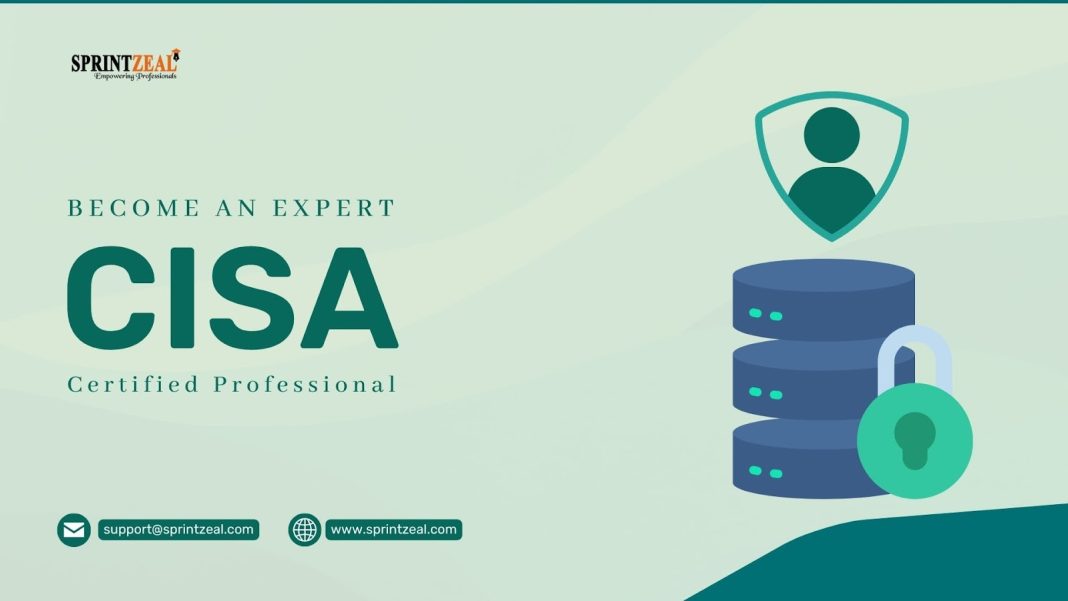Introduction
In today’s rapidly evolving technological landscape, organizations face increasing cybersecurity threats and regulatory compliance challenges. To effectively address these concerns, businesses rely on certified professionals who possess the necessary skills and knowledge to ensure the security of their systems and uphold compliance standards. One such certification is the Certified Information Systems Auditor (CISA), offered by ISACA (Information Systems Audit and Control Association). In this blog post, we will explore the impact of CISA certification on auditing practices and compliance.
The Role of CISA in Auditing
The CISA certification course is globally recognized as the standard for information systems auditing. It validates an individual’s expertise in assessing vulnerabilities, managing vulnerabilities, and instituting controls within an organization’s information systems. CISA professionals possess a deep understanding of auditing principles and practices, risk management, and governance.
Enhancing Auditing Skills
The CISA certification equips professionals with the necessary skills to conduct comprehensive information systems audits. These skills include evaluating system vulnerabilities, assessing risks, and designing appropriate control measures. CISA-certified auditors can identify weaknesses in an organization’s IT infrastructure and provide valuable recommendations for improvement.
Strengthening Compliance Practices
Maintaining compliance with industry regulations and standards is crucial for organizations across various sectors. CISA professionals play a vital role in ensuring that the necessary controls are in place to meet these requirements. Their expertise in auditing and risk management helps organizations identify and address potential compliance gaps, reducing the risk of penalties and legal repercussions.
Advancing Cybersecurity Measures
Cybersecurity is a top concern for organizations in the digital age. CISA-certified professionals possess an in-depth knowledge of information security concepts and best practices. Their skills enable them to evaluate an organization’s security posture, identify vulnerabilities, and recommend appropriate security controls. By leveraging their expertise, CISA auditors contribute to building robust cybersecurity frameworks that protect sensitive data from breaches and unauthorized access.
Demonstrating Professionalism and Trust
CISA certification signifies a high level of professionalism and expertise in the field of information systems auditing. Organizations and stakeholders gain confidence in the audit process when working with CISA-certified professionals. These individuals adhere to a strict code of ethics, ensuring the integrity and objectivity of their audits. The CISA certification establishes credibility and trustworthiness, enhancing the value of audit reports and recommendations.
Keeping Pace with Technological Advancements
As technology continues to advance rapidly, auditors must stay up-to-date with the latest trends, emerging risks, and regulatory changes. CISA certification requires professionals to engage in ongoing professional development, ensuring they remain knowledgeable about current practices and technologies. This commitment to continuous learning equips CISA-certified auditors with the ability to address evolving challenges effectively.
Conclusion
The CISA certification plays a significant role in shaping auditing practices and compliance within organizations. Certified Information Systems Auditors possess the expertise to assess vulnerabilities, manage risks, and enforce controls in information systems. Sprintzeal By enhancing auditing skills, strengthening compliance practices, and advancing cybersecurity measures, CISA-certified professionals contribute to the overall security and integrity of organizations. Their professionalism and ongoing commitment to learning make them trusted partners in ensuring the effectiveness of audits and compliance efforts. Embracing CISA certification can be a strategic step for both auditors and organizations aiming to bolster their cybersecurity defenses and meet regulatory obligations.










